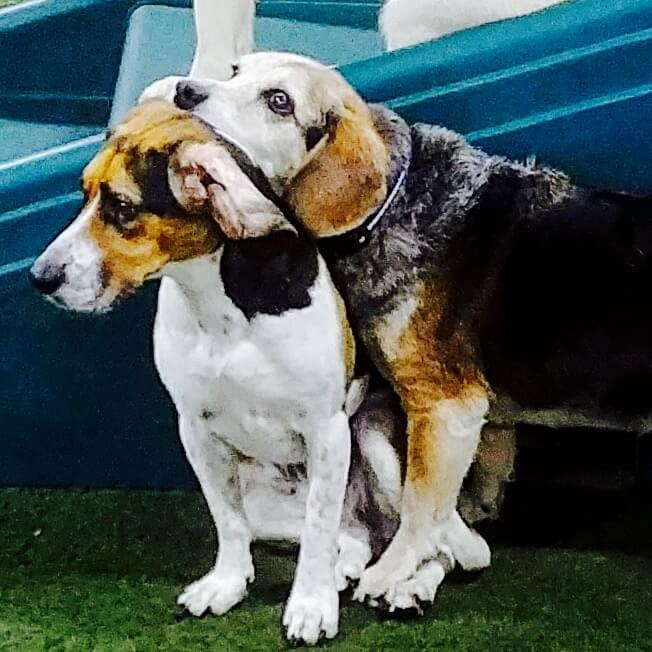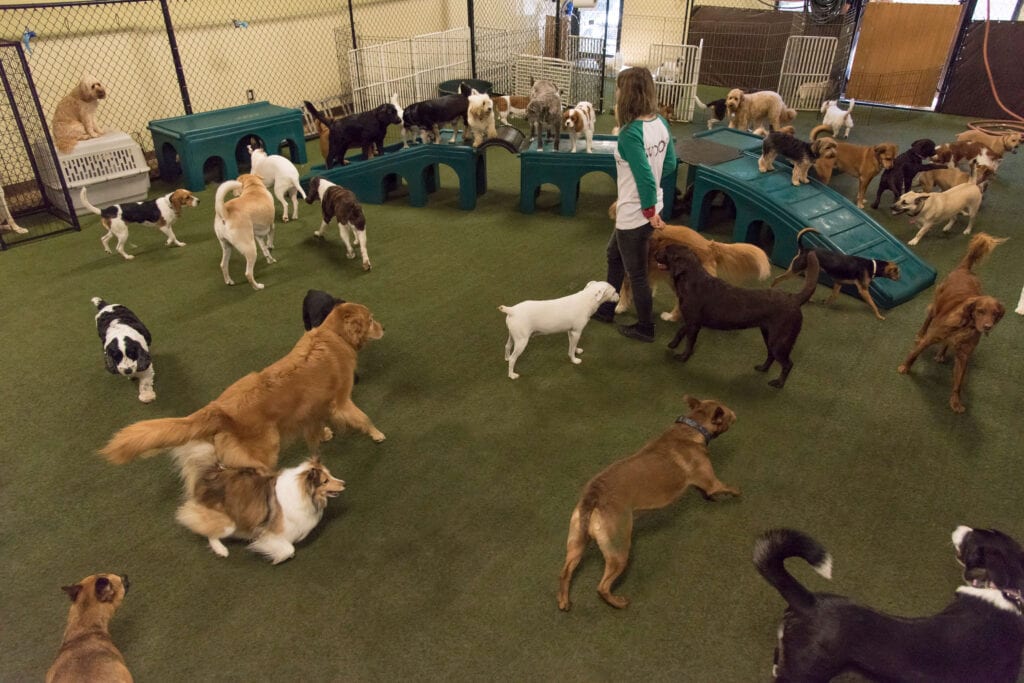Periodontal disease is the most common health concern for dogs and cats. It’s estimated that 80% of dogs over the age of three have dental disease. That’s a huge percentage of the dog population! That’s why brushing your dog’s teeth is so important.
Signs of periodontal disease include bad breath, tartar, difficulty eating, bleeding gums and loose teeth. But you might not always notice if your dog is suffering. Many dogs don’t display discomfort and you might disregard their breath odor or maybe it doesn’t smell bad. That does not mean periodontal disease is not lurking.
Many people avoid getting their dog’s teeth cleaned because it’s costly or they are afraid of having their dog go under anesthesia. The truth is, it’s a lot more dangerous to let periodontal disease go untreated than to go under anesthesia.
Daily brushing makes a huge difference in your dog’s dental health. Not everyone feels comfortable brushing their dog’s teeth and not every dog like it, but you can work together, establish a routine and have it as a rewarding part of your relationship. There are many videos on YouTube that show you methods of brushing or you can talk to your dog’s veterinarian or hire a trainer to help you get set up for success.
There are a lot of doggie dental products on the market and it can be confusing to choose one to use with your dog. Some products don’t require brushing, there are flavored toothpastes, gels, sprays, water additives, and dental chews. As you look at the different products keep in mind that dogs don’t spit out after brushing, but rather swallow, so whatever you are putting in your dog’s mouth, is going to end up in his system.
It’s often said to look for products that bear the Veterinary Oral Health Council (VOHC) seal of approval because they’ve gone through clinical trials and have been proven to work. It’s important to know what the guidelines for the trial are. For toothpastes the dog’s teeth must be brushed daily at a 45-degree angle, with three strokes over each section of the mouth.
As you look at products, keep in mind:
- Products that contain baking soda should be used with caution if your dog has high blood pressure or a heart condition because of the sodium content.
- Products that do not require brushing could contain chemicals that are harmful or ingredients that make your dog’s mouth sensitive.
- Dental chews may contain harmful ingredients, be too hard for your dog’s teeth or could be swallowed whole. Always supervise your dog when giving a dental bone, and don’t give it if you dog will not allow you to take things away once he or she has them.
- Artificial flavorings could be harmful to your dog. Look for natural products whenever possible.
In reality, it’s the action of brushing that is most important, not the product you are using to brush with. Flavored toothpaste can however help get your dog to agree to the experience. You don’t have to brush for a long time, but you do need to get all the way back in your dog’s mouth to the back molars.
Periodontal disease has four stages. Only stage one is reversable, so it’s important to catch dental disease early!
- Stage One is mild gingivitis. The gums are a little inflamed, but there are no deep pockets or bone loss. This stage is totally reversible with a professional cleaning.
- Stage Two is early periodontal disease. There is a lot of tartar build up, inflammation, up to 25% bone loss, gum recession and deep pockets. Teeth are not loose at this point but tartar can really start to build up in the deep pockets and it’s very difficult to clean. At this point the damage is no longer reversable.
- Stage Three is periodontal disease. There is severe tartar build up, a lot of tissue loss, very deep pockets and up to 50% bone loss. Teeth can be very loose at this stage
- Stage Four is end stage periodontal disease. At this stage there is a lot of bone loss as the infection has eaten away the tooth from the jaw. Bacteria and toxins leak into the dog’s body that can cause heart, liver and kidney disease. At this stage and the tooth must be removed.
There is no replacement for daily brushing. Not even professional cleanings. It all has to go hand in hand. Just like you brush your teeth every day and still go for professional cleanings. You wouldn’t expect to go all year without brushing your teeth and then go in for an annual cleaning and not have problems. The same is true for your dog. Good dental hygiene is vital to your dog’s optimal health and longevity.






